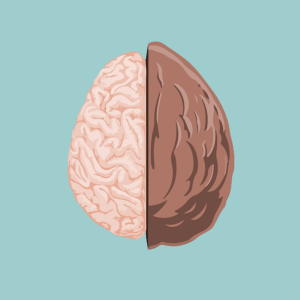

This episode is proudly sponsored by PlexusDx - your trusted partner in precision health. Discover the power of personalized wellness with our Longevity and Biological Age Genetic Test and over 25 cutting-edge health and wellness genetic tests designed to help you optimize your health. Visit PlexusDx.com to learn more. Now, let’s dive into today’s episode!
Welcome to our exploration of a fascinating topic: what really determines biological age? This intriguing concept often shows a significant difference from our chronological age. Some individuals seem to age gracefully, while others face various health challenges as time goes on. Let’s unpack this a bit.
Biological age is essentially the functional age of your body, determined by multiple biological indicators rather than just the number of candles on your birthday cake. It provides essential insights into our health and longevity. So, what influences this biological age? It’s a mix of genetics, lifestyle choices, and environmental factors.
First up, genetics. Your genetic makeup plays a huge role in determining your biological age. Certain genes can make you more susceptible to age-related diseases and can even affect how your body responds to stress and environmental factors. For instance, the MTHFR gene is crucial for metabolizing folate, which is vital for your overall health.
Next, we have lifestyle choices. What you eat, how much you move, and even your sleep patterns can significantly shape your biological age. Eating a diet rich in antioxidants, staying active, and getting enough sleep can help slow down the aging process.
Environmental factors also come into play. Exposure to toxins and pollution, along with chronic stress, can speed up biological aging. Practicing mindfulness and reducing exposure to harmful substances can help maintain a healthier biological age.
Let’s not forget about inflammation. Chronic inflammation is a major contributor to aging and can lead to various health issues like heart disease and diabetes. Understanding the inflammatory markers in your body can provide valuable insights into your biological age.
So, how can you assess your biological age? One effective method is through genetic testing. A methylation genetic test can reveal important information about your biological age by examining DNA markers. Regular health assessments, like checking blood pressure and cholesterol levels, can also help track biological age indicators.
Once you know what influences your biological age, you can take actionable steps to manage it. Here are a few practical tips:
- Optimize Your Diet: Focus on whole foods—fruits, vegetables, whole grains, healthy fats, and lean proteins. Antioxidant-rich foods are particularly beneficial.
- Stay Active: Aim for at least 150 minutes of moderate aerobic exercise each week, plus some strength training.
- Manage Stress: Incorporate daily stress-reducing practices like meditation, deep breathing, or simply spending time in nature.
- Prioritize Sleep: Strive for 7 to 9 hours of quality sleep each night. A consistent sleep routine can make a big difference.
- Consider Genetic Testing: Understanding your genetic predispositions can empower you to make informed lifestyle choices.
In conclusion, knowing the factors that define your biological age can help you manage your health and well-being more effectively. Genetics, lifestyle, and environment all play a role, and with the right information, you can make choices that potentially slow down the aging process.
If you’re curious about your biological age and want to take a deeper dive, check out the Precision Health & Wellness tests from PlexusDx. They’re available at PlexusDx.com, Amazon, and Walmart.com. These tests provide personalized insights that can help you on your health journey.
Thank you for reading! If you found this information insightful, please share it with others. Remember, always consult a licensed healthcare provider for concerns about your health and before you stop or start any medical treatment.
Ready to take control of your health with precision genetic insights? You can purchase the PlexusDx Longevity and Aging Genetic Test from these trusted retailers:
- 👉 PlexusDx – Order directly from our official website.
- 👉 Amazon – Convenient shopping with fast shipping.
- 👉 Walmart – Buy online from a trusted retailer.
Get your personalized DNA insights today and start optimizing your health! 🚀
More Episodes
All Episodes>>Create Your Podcast In Minutes
- Full-featured podcast site
- Unlimited storage and bandwidth
- Comprehensive podcast stats
- Distribute to Apple Podcasts, Spotify, and more
- Make money with your podcast












